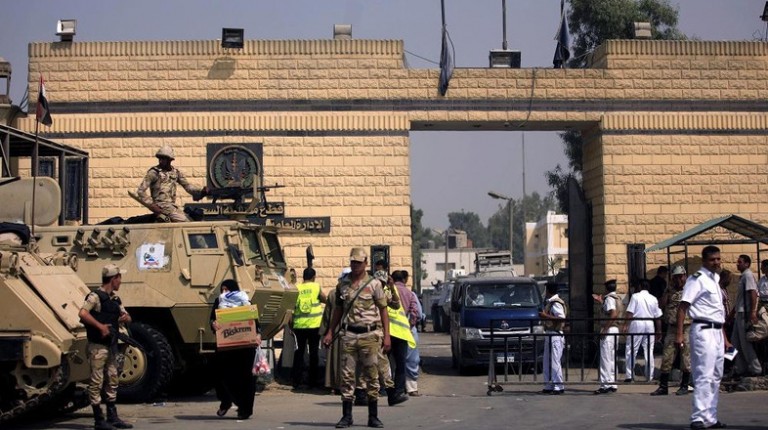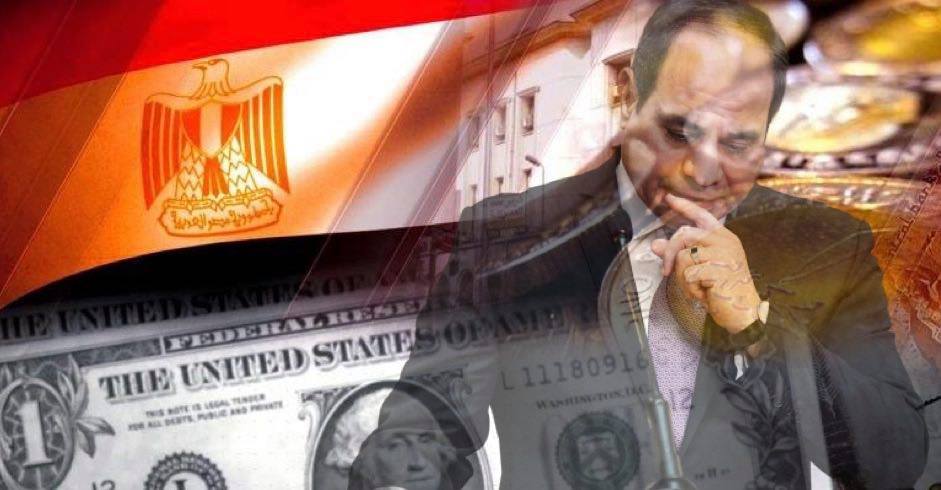On Tuesday Arabi21 published a leaked message from inside Tora high-security prison, the Scorpion, about the conditions of political prisoners under the pandemic of coronavirus. The prisoners said: “We’re facing death chained, without fresh air, sun, medication, doctors, relatives, food or mercy. Last week, [we began to get] symptoms, coughs, fever and pneumonia. A state of panic broke out among us, and each of us started to write his will.” “Our calls were faced with deliberate comprehensive ignorance; neither were we transferred to the hospital, nor did the doctor come to check us. A state of fear and panic broke out among officers, informants, and even doctors; all of them fear entering the prison wards or talking to us,” the message added. “We’re screaming and appealing to all human rights and medical organisations, to everybody who believes in our right to live; it may be our last call: save us, al-Sisi’s regime is killing us with coronavirus,” the message concluded.
Calls to release prisoners
From inside the parliament the 25-30 Alliance issued a statement called on the public prosecutor to immediately release any pre-trial detainee who spent more than 150 days in prison without conviction. They demanded they be released under precautionary measures. They also demanded a general amnesty for critical cases of sick and elderly people who have not been convicted under terrorist or criminal acts. The statement also noted that 85,000 prisoners in Iran have been released to stop the spread of coronavirus. Justice for Human Rights foundation, el-Shehab Centre for Human Rights, the Organisation for the Protection of Human Rights and Human Rights Monitor have issued a joint statement demanding the immediate release of prisoners and warned that overcrowding, poor ventilation and unhygienic conditions will result in a human crisis. The statement said: “The risk will come to everyone whether they are political or criminal prisoners, as well as prison officers and administrators.”
The regime responded with more prisoners
Last week the security forces detained Mona Seif and Laila Soueif, sister and mother of the detained activist Alaa Abdel Fattah, and also detained Ahdaf Soueif and Rabab al-Mahdy after they protested calling for the release of political prisoners to stop the spread of coronavirus. Mona Seif published a Facebook live stream for 15 minutes: “We are in front of the cabinet headquarters, demanding the state to take serious measures regarding the coronavirus crisis in Egyptian prisons.” The video showed a police officer attempting prevent them from protesting, asking them to go to his office and discuss the problem, but they refused and asked for an official from the cabinet to respond to their demands. Mona was forced to turn the camera off and they were arrested and taken to Qasr el-Nil Police Station. The prosecution released them on EGP 5,000 bail, but they are still in detention until now according to Sanaa Seif’s status: “My mom Laila Soueif is in the state security prosecution. My sister Mona, my aunt Ahdaf Soueif and our family friend Rabab El Mahdy are in Kasr el Nile police station.”
Medical negligence in Egyptian prisons
According to the Arabic Network for Human Rights Information, the number of legal detention places is over 504 including 43 old prisons, 19 new prisons after the revolution, 122 central prisons, 320 police stations and hundreds of detention places and administrations considered legal since 1969. There are also many illegal detention places, such as security forces’ camps and military prisons. A report by the group issued in September 2016 estimated that the number of prisoners in Egypt is 106,000, including 60,000 political prisoners. Scorpion Prison, from where the message was leaked, has the largest number of cases of medical neglect. Prison hospitals lack the minimum infrastructure and the prison administration usually obstructs transport to hospitals outside the prison. This resulted in the death of 17 per cent of all medical negligence cases reported in Egyptian prisons between 2015 and 2018, which is about 169 deaths according to the Adalah Centre for Rights and Freedoms. Of course, we cannot ignore the slow death of the late president Mohamed Morsi because of medical neglect. Since the beginning of the COVID -19 pandemic, instead of releasing the prisoners or providing the necessary healthcare, Egyptian prisons have banned prison visits arguing that they are containing the virus, and authorities have suspended court operations. Article 55 of the Egyptian constitution states: “Every person who is either arrested, detained, or his freedom is restricted shall be treated in a manner that maintains his dignity… and may not be seized or detained except in places designated for that purpose, which shall be adequate on human and health levels.” Article 56 says: “A prison is a place of correction and rehabilitation. Prisons and places of detention shall be subject to judiciary supervision, where actions inconsistent with human dignity or which endanger human health shall be prohibited.” Also, there are 36 articles in prison regulations explaining the duties and responsibilities of the prison doctor which includes; the doctor’s responsibility to protect the prisoners from epidemic diseases, in addition to requesting a quarantine for any prisoner who has an infectious disease to prevent the disease from spreading among the prisoners. It seems that the Egyptian regime is dealing with all problems from the perspective of security authorities, which may consider the release of the prisoners as an extra burden. On the other hand, many police forces including officers, informants, and administrative employees are a few steps away from coronavirus. The regime and society as a whole are in a critical situation. The large number of prisoners across the country may result in epicentres of the epidemic which don’t take into account the difference between a prisoner and his jailer.





Recent Comments